Navigating The Great Divide
In the wake of recent findings and public sentiment, combating social inequality has even been declared a “national priority” in Singapore. Our alumni weigh in on this hot-button issue.
MIND THE GAP!
The Commitment to Reducing Inequality Index, compiled by non-profit organisations Oxfam and Development Finance International, ranked Singapore 149th out of 157 countries — below Ethiopia and Afghanistan. This has sparked debates — some in agreement while others in rebuttal to the report — in Parliament, in letters to news editors, and on social media.
OUR PANEL
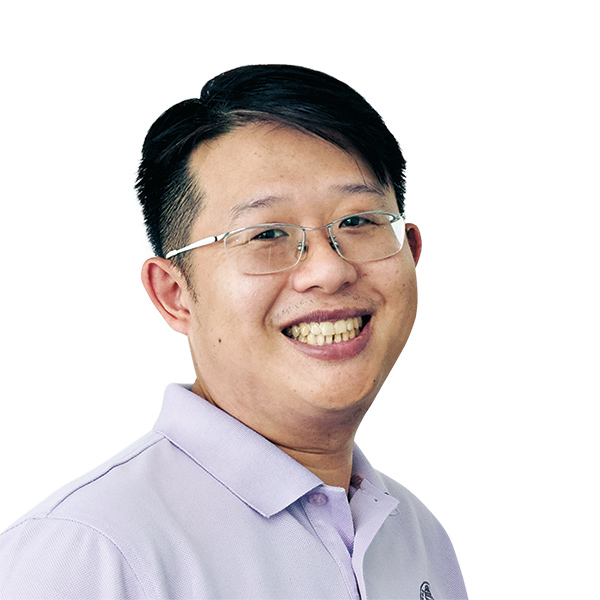
Mr Lee Kok How
(Arts and Social Sciences ’03, Science ’10)
39, Entrepreneur
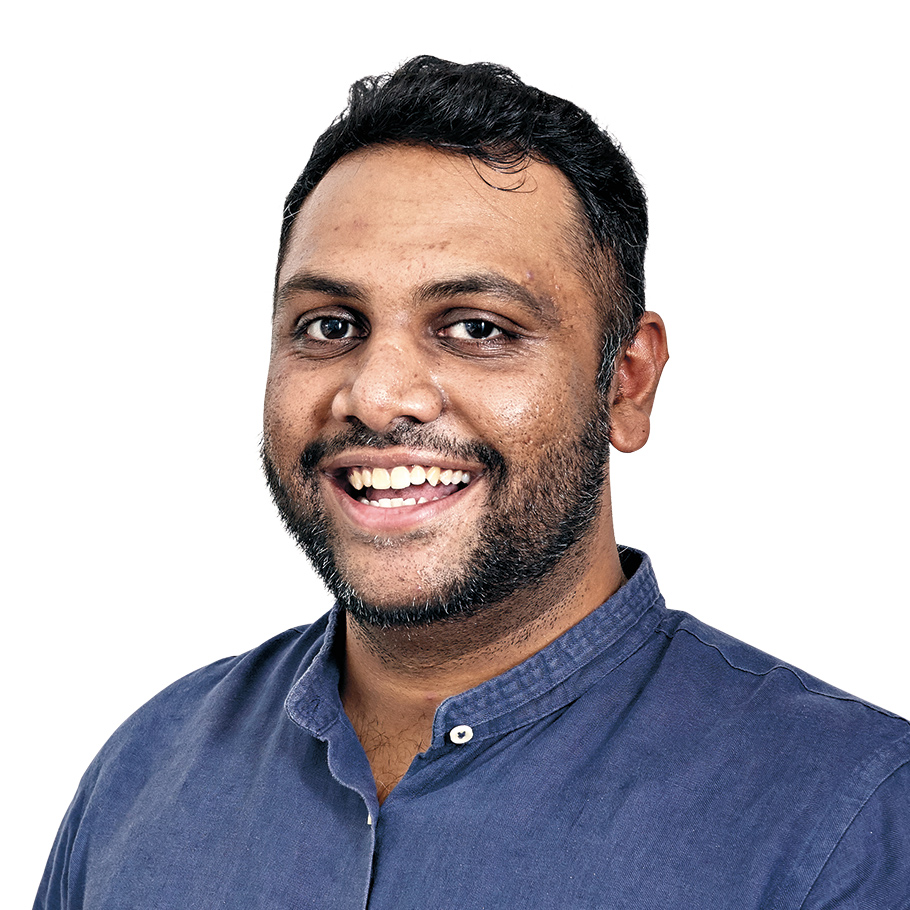
Mr Saravanan Sugumaran
(Public Policy ’16)
33, Former environmental journalist
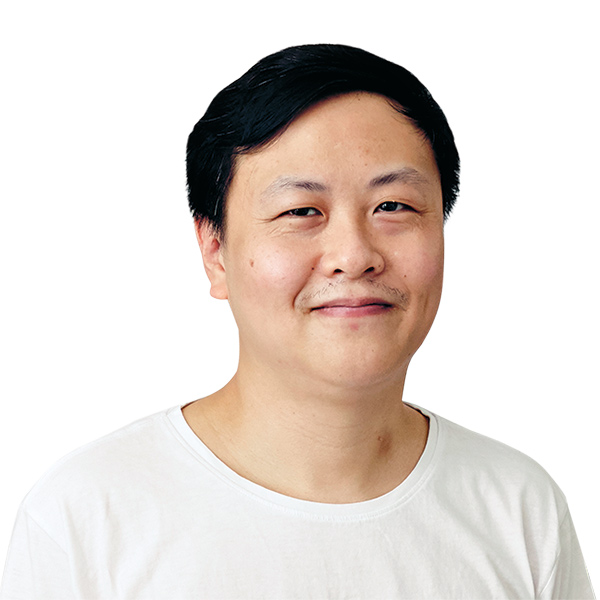
Mr Harold Seah
(Arts and Social Sciences ’97)
45, Business consultant
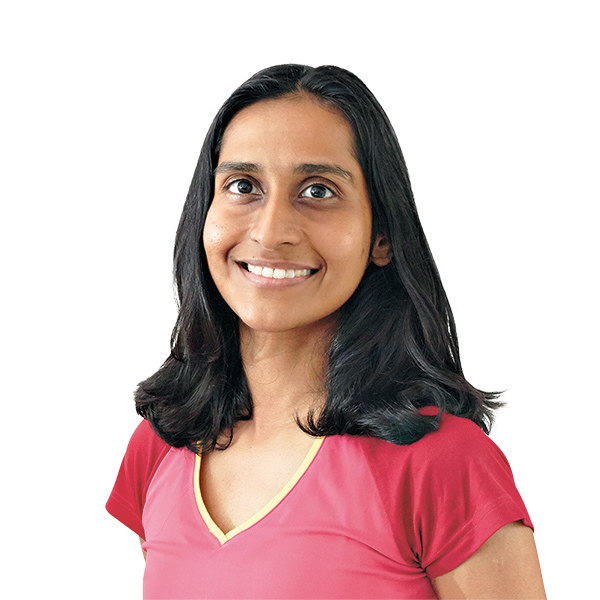
Ms Sherene Lobo
(Arts and Social Sciences ’06)
35, Case management officer
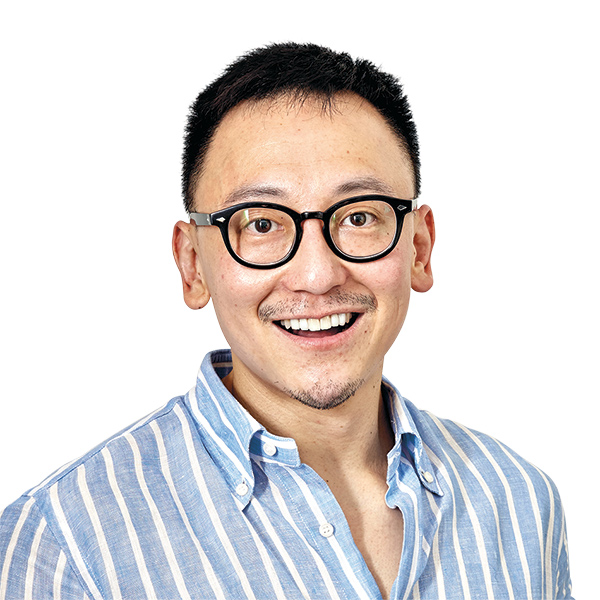
Mr Thaddeus Yeo
(Arts and Social Sciences ’00)
42, Restaurateur
In your view, how serious is the problem of social inequality in Singapore?
Thaddeus: There is an obvious social divide between the diners at my restaurant and those who serve them. But the divide is apparent even among staff — and it might create friction at times. So while I am aware of the social inequality, it is something I’ve come to accept.
Harold: Social and income inequality are different but related — and the latter is very glaring when I go through the audited accounts of some of the SMEs that I consult for. It is common to have a massive divide between the average wage and that of the top earners — and it is just a few on top with the lion’s share. This income inequality could then lead to social inequality.
Kok How: It is more prevalent now. Our country was built on meritocracy: in a time when most people are on the same playing field, meritocracy creates an incentive structure to move up. However, in our current state of development, the rich will get richer — because they have the money to keep growing, and also the networks they have are of a different calibre.
Sherene: Through my work (counselling hospital patients) I see a wide gap between the haves and have-nots. This is not just a product of income disparity, but also family dysfunctions passed down from generation to generation — such as drug abuse, mental health issues and family violence that get passed on. A really bright child growing up in an underprivileged family might not have anyone to help him to realise his potential, or have access to the same opportunities as his peers. So it is not just about closing the income gap but also creating a support system for the underprivileged to break out of their cycles.
Have you personally experienced any effects of social inequality?
Bridging the gap is thus not just about closing the income gap but also creating a support system for the underprivileged to break out of their cycles.
Ms Sherene Lobo
Harold: I didn’t feel it acutely in school. You knew back then that some friends were wealthier than others and there were some disadvantaged cases. But at the same time I have never differentiated myself by saying that I would only mix with those with good grades or bigger house. We lived in a HDB flat — and public housing is mixed-income housing: within one block you’d have people like my parents, the typical middle-class teachers, my neighbours the ‘aspirationals’ who upgraded quickly — and the serial killer Adrian Lim! National Service is a leveller, but while you might be taken aback by the brash behaviour of some from disadvantaged backgrounds, you never feel like you are more superior.
Saravanan: It me took a few months to connect with the Singaporean students at the Lee Kuan Yew School of Public Policy (LKYSSP) — simply because I am a poly graduate and not from Raffles Junior College (RJC) or NUS. Now that we are friends, I invite them to my Deepavali parties, but I see little interaction between them and my poly mates. My poly and NS friends are just there to have a good time and enjoy the food, whereas my LKYSSP friends — many of them government scholars — are there more to network with the professors or my friends from abroad.
Harold: In a way, social inequality is an outcome of people stratifying themselves according to their “class” and forming their own little enclaves of wealth and network.

Speaking of “class”, what do you think is your own class position?
Harold: I am a classic case of the middle class, one who has moved from public housing to private housing. Property has always been an indicator of class position, but condominiums have become such a normal part of the housing landscape in Singapore that the distinction between public and private is no longer so wide.
Thaddeus: By virtue of the fact that we are all university graduates, we are all middle class by definition. But where within the spectrum one stands depends on other factors: where you buy your groceries, how you choose your social circle.
Saravanan: I would say I am at the low-end because I am a job-seeker. Yet at the same time I am part of a family that is middle or upper middle class. I am a bit different in that while I graduated from LKYSPP, I came from a polytechnic background. Education is an obvious qualifier in social status, but so is overseas experience — which I gained working as a journalist in Europe for 10 years. Somehow, because of my experience I am perceived to be of ‘higher’ social standing, even though I am essentially the same person (as I was coming out of poly)! The change in how people see me is like night and day, and I think it is unfair, especially when I see a big divide between the opportunities and social mobility that my old poly friends have compared to those I know from university.
Sherene: To be honest, those who are truly in the lowest ranks of society won’t even have the head
space to be thinking about abstract things like social inequality. Their concerns are very bread and butter: “How am I going to pay for my children’s meals, or my phone bill?”
Does our education system serve as a leveller?
The problem doesn’t lie with the school, but with society. Even though the ministry is slowly changing the evaluation system, we place so much emphasis on grades and certifications.
Mr Lee Kok How
Harold: Public housing and education have been intended as tools to reduce inequality and prove that meritocracy works. However, with inherent class or family issues, you get very disparate outcomes. Is it a problem with the system? Or a bigger issue? I am not sure.
Kok How: The problem doesn’t lie with the school, but with society. Even though the ministry is slowly changing the evaluation system, we place so much emphasis on grades and certifications. Just take the Civil Service for example: whether or not you have a Masters degree, or a degree from a local university or an Ivy League school, all translates to different pay grades.
Thaddeus: Though education is meant to level the playing field, it is very stratified — for example, the chances of you getting into the elite schools situated within certain high-end private estates are higher if your parents were from the school, or if you happen to live in the estate. That said, I think Singapore’s ranking on the [Commitment to Reducing Inequality] index is unfair as we are marked down for our tax structure.
Harold: I am very pained to think about school issues for my daughter, even though she is all of three years old. While I try not to buy into the things about going into the right school because the networking starts from there etc., I still feel like I need to set her up well by sending her to a “good” school. In that way I am trapped in the system.
Kok How: It is different when you have skin in the game. My children are two, four and six years of age and my eldest will be going into my alma mater, which is a neighbourhood school. That said, I wouldn’t call myself an egalitarian, because I did try to volunteer at a reputable primary school — but they didn’t even want me!
The very notion of meritocracy means that rewards are linked to achievements, which means that inequality is ‘institutionalised’ in a way. Should we therefore do away with meritocracy?
Saravanan: There is partial and pure meritocracy, and our system could be the next best thing. When I was living overseas, I saw that Singapore is regarded quite highly as compared to other counties in the region. Our social mobility is actually better than other countries in ASEAN. Yes, indeed, the majority of the population doesn’t make it to university — do you cater to the bottom 60% or the top 20%? We cater to the 20%, because it strengthens the ultimate economic outlook and success of the country.
Kok How: Meritocracy has to be built on a level playing field, but with the fracture so wide today, I would actually welcome unemployment subsidy. This is because I believe that the social security net promotes the entrepreneurship you see in Western societies. This risk-taking mentality is what we need in our current stage of development. On top of that, being risk-takers wired to be different, entrepreneurs are also less likely to care about paper qualifications, thus creating an environment that can allow people to prove their worth differently.
Sherene: There are, indeed, family service centres and community organisations to support families in need. However, there are those who fall through the cracks because they don’t fit the bill on paper. Most of the underprivileged want to rise out of their situation, but some of them are mentally trapped, thinking that if their grandfather and father were like this, this is how they will be too. They are not shown that there is something else to work towards. That said, some are very motivated and resilient, and don’t feel trapped. I think it is dependent on the individual to rise above — public systems can only work to a certain point.
Harold: A social safety net might sound fiscally irresponsible but with the dole system, a bigger group of people won’t get trapped by financial circumstances to explore new things and, as Kok How pointed out, explore setting up their own businesses. Of course there would be those who abuse the system, but it is also an effective support system for those who seek to improve their lives.
Based on 2017 figures, Singapore’s per capita GDP (At Purchasing power parity) is US$90,531 the 3rd highest in the world.
As Thaddeus mentioned, Oxfam attributed our dismal ranking this year to the introduction of a new indicator on “harmful tax practices” to its previous checklist of indicators. Should our maximum tax rate of 22 per cent be raised?
Kok How: I am willing to pay more if it is used to produce a social safety net. The role of a government is to internalise the externalities. There are always things that cannot be solved through market forces, and taxing the rich to provide something for the poor can help to level the playing field.
Harold: Singapore is founded as a trading economy and our genesis is different from other countries. Intellectually, I can agree that we can afford to tax those who have more, and I believe that it might have better effect on the area of social inequality. However, whether it is effective in implementation is unknown.
Kok How: Instead of taxing income, tax wealth to level out the disparity — such as taxes on second, third or fourth houses; things that the rich use to accumulate wealth.
Saravanan: I don’t think you should tax wealth or income more because I don’t think the onus is on the citizen to solve the problem. I am basing this on the fact that the country has the money to solve whatever issues it wants to focus on. At the same time, I am opposed to raising taxes based on my experience living in Denmark, which has one of the highest tax rates in the world. The citizens feel extremely entitled because of the huge amount of taxes they pay. They are also very protective of their entitlements and anybody who comes from outside of the system is immediately excluded — as a foreign student I had to wait for every single Danish student to find their housing before I was allowed to get mine. Such a system does not work for a trading economy.
Thaddeus: We should also realise that social inequality is a problem all societies face. This issue has only been brought up because the government sees it as an economic problem — just as how diabetes can impact our economy. So, we are approaching this problem — systemic of human nature — like a math problem, with economic outcomes as the focus. At the same time, it is more than just a matter of taxing the top to support the bottom. The social issue to address is a sense of privilege that overrides it all.
If you’d like to join our Forum panel, do write to us at OARconnect@nus.edu.sg to express your interest and pick from our list of future discussion topics that you may want be part of.
Special thanks to Associate Professor Tan Ern Ser (Arts and Social Sciences ’79 ’85) from the NUS Department of Sociology for his help in formulating the questions.
Text By Koh Yuen Lin. Photos By Teck Lim